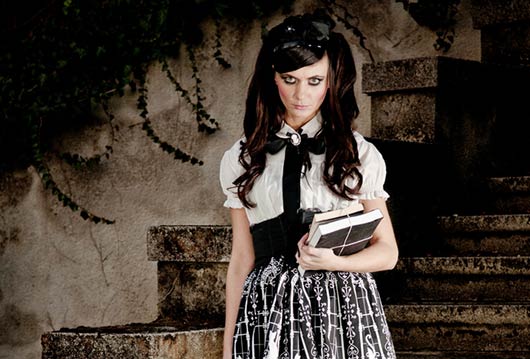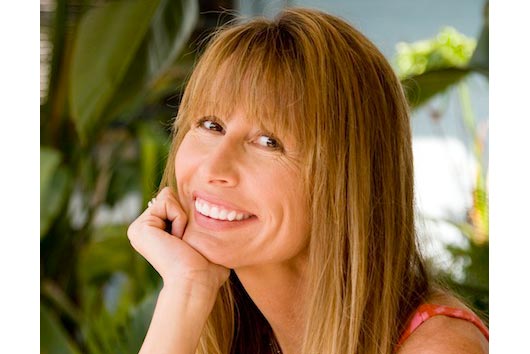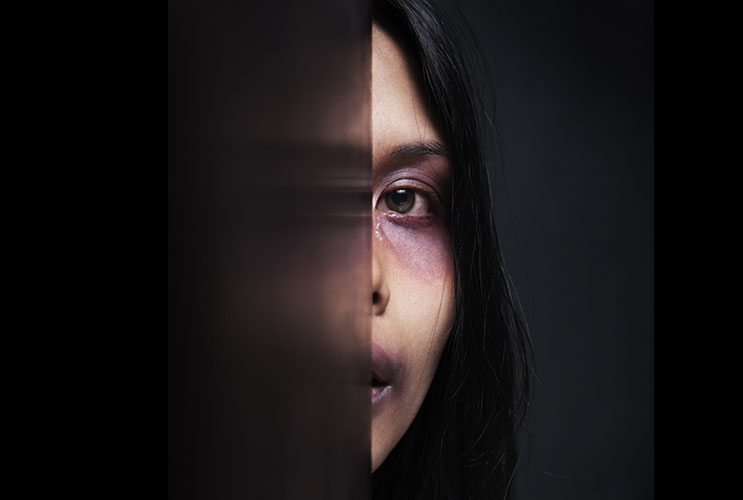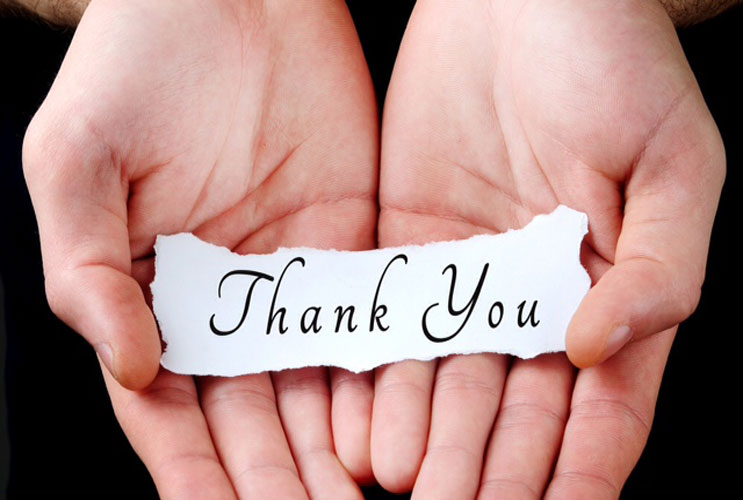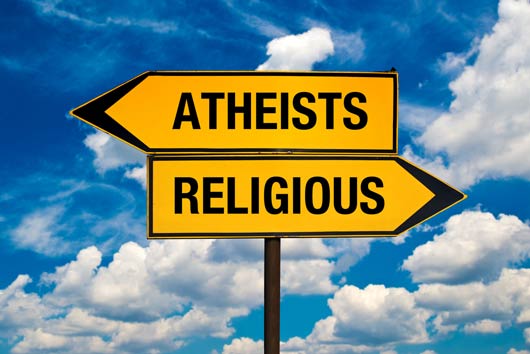
It was 1988 and I was sitting in my junior year religion class at my Catholic high school. Despite the best efforts of my teacher (a perky ex-nun, think Kathy Najimy in “Sister Act”) I was bored to tears. Suddenly, the door to the classroom opened and the vice-principal walked in with a tiny, shy-looking girl. He whispered something to the teacher and left the girl behind. The teacher took the girl by the shoulders, turned to us and announced, “Everyone! Everyone! We have a new student!!! Her name is Kerry! Kerry, why don’t you tell us a little bit about yourself and a little bit about your faith, all right? OK!” The girl swallowed hard, pushed her thick glasses up onto her nose and spoke in a high, quivering, lamblike voice, “Um, well…I’m Kerry and, um…I just moved here from Vermont and, um, well…I’m an atheist.” As the entire class erupted in a dramatic, pearl-clutching gasp, I thought, “Now this could be interesting!”
Read Related: 20 Things You Didn’t Know About Atheists
My upbringing very much fit the stereotype of the Catholic Latino family. We went to church every Sunday, attended Catholic school and observed all the church holidays with a big celebration. I had certainly met people from other faiths, but until that day in high school, I had never, ever met an atheist. In fact, I’m not sure I was even aware that there was such a thing as atheism until then! Nowadays, I consider myself a “cultural Catholic,” I no longer attend mass or observe the rituals, but I still appreciate it as a shared experience that links me to others. (The only vestige of my “past life” is that I still give things up for Lent, I’ve just always liked that practice.) Recently I’ve been wondering whether atheists have a culture, too.
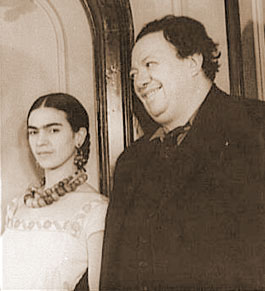
Famous Latino Artists and Atheists Frida Kahlo and Diego Rivera.
I spoke with Aimie Beirnes, a Canadian atheist, of the World Wide Atheist Community. The first thing I wanted to know was how she became an atheist. “Like many people I have come across, I feel as though I have always naturally been drawn towards atheism…although my family wasn’t religious, many of my childhood friends were. I went to church, religious functions, camps, etc. I even got baptized into the Roman Catholic church when I was 15. I tried very hard for a number of years to be a believer. I would say finally about two years ago or so I gave up forcing myself to try and believe in something that didn’t feel right.” When asked how the people in her life responded to her atheism, Beirnes says, “I have had a couple of very negative reactions of people whom I grew up with who were surprised by my atheistic “coming out” but really those are few and far between. I am fairly open about my beliefs even via public forums like Facebook. I tend to surround myself with like-minded people, so there isn’t usually a strong reaction either way.” Does she ever feel prejudged or misunderstood as an atheist? Says Beirnes, “I would say the most common misconception about atheism and atheists is that we have something against god, or that we are jaded and bitter towards god. I’ve had many theists ask me why I hate god, when really I just don’t believe in one.”

Yep, Rafa Nadal is an atheist, too!
That all sounded very reasonable to me, but I must admit I wondered how someone with a similar cultural background to mine might be drawn to Atheism. To my surprise I learned there is a whole website dedicated to Latino Atheism called, “Latino/a Atheists”, which provides many resources on this subject. I contacted Pedro Garcia, a atheist of Mexican descent (you can find him on Facebook HERE) and asked how he came to Atheism, “I grew up in a small town where pretty much everybody I knew was Catholic. When I was about 10-years-old, I moved to Mexico City. There, I was exposed to many different religions [and] realized that all these religions claimed to be the one that was “right.” That made me think, what if none of them are right? My beliefs in religion started diminishing after that.”
And how have the people in his life reacted to his Atheism? “My mom and my brother don’t have any problem with me being an Atheist,” he says. “I find that coworkers and some friends find it a little offensive that I don’t share their beliefs. They usually always ask me the same questions like ‘Why don’t you believe? Usually Latinos are the ones who tell me that I am wrong and [that] I am living in a ‘fantasy world’. One of my friends sees me differently now that he knows I am Atheist. Now, every time I see him all he does is talk to me about ‘Jesus’ and how I am taking for granted what he did for me. Just little things like that [can] make me feel like people see me as a bad person just because I don’t have theist beliefs.”

Enjoying Facebook? Thank Atheist Mark Zuckerberg!
There seem to be many misconceptions about Atheism out there. For a start, many people confuse Atheists with Agnostics. What’s the difference? Well, in a nutshell, Agnostics don’t believe or disbelieve in God (they are open to either possibility) and Atheists believe that God does not exist. “A lot of people think that we feel like we don’t need to ‘act good’ since we don’t believe in heaven or hell. I want people to understand that being an Atheist doesn’t mean that we have lost our morals and have become bad people. I try to be good to people not because I expect a reward in the afterlife [but] because it just feels good to be a ‘good person’.” says Pedro.
Aimie adds: “Another misconception I hear often is that ‘atheists don’t believe in anything.’ Well, that’s not true either. Generally, we invest our ‘beliefs’ into things that have substantial proof behind them, that’s all. The main thing I would like people to know about me as an Atheist is that, I do honestly believe that it is my job to speak out and stand up for the knowledge that I have.”
I can’t help but recall how my fellow students reacted to that new, “Atheist girl” back in 1988. They certainly did not try to hide their shock and disdain. Looking back, I’m pretty sure it was only because, like me, they had never encountered such a thing before and they didn’t quite know how to react. One girl, who sat next to me, was very mean and used to say the most awful things about the new girl every time she walked into the classroom. It made me very uncomfortable, so much so that I finally approached the new girl to let her know that I did not agree with the things the mean girl was saying at all. And the new girl? The Atheist? She’s been my best friend ever since. For more information on Atheism, you can check out Latino/a Atheists and Agnostics and Atheists for a Greater Good.
Wishing you love with extra cheese—
Nacho Mama

